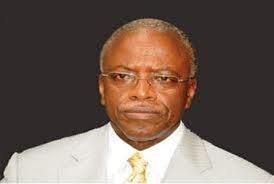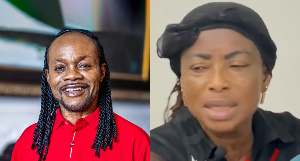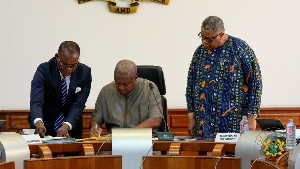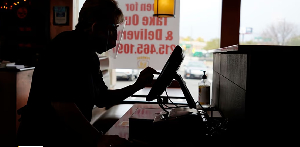The Government of Ghana on Tuesday reaffirmed its commitment to peace, security and stability of Cote d’Ivoire, Mr Chris Kpodo, Deputy Minister of Foreign Affairs and Regional Integration said in Accra.
He said: “President John Daramani Mahama’s position is that Ghana will not tolerate the use of its territory for activities aimed at destabilizing any neighbouring country including Cote d’Ivoire by either Ivoirian Refugees or any person or group of persons.”
Mr Kpodo stated during the signing of the final communiqué of the Tripartite Commission - Ghana, Cote d’Ivoire and the United Nations High Commissioner for Refugees (UNHCR.
The Tripartite Commission was charged with the voluntary repatriation of refugees from Cote d’Ivoire living in Ghana.
He explained that deliberations and co-operations between Ghana and Cote d’Ivoire was not merely states or neighbours but between peoples of the same origin whose destiny was inextricably connected.
“It is therefore, our shared responsibility to work towards peace, security and stability in Cote d’Ivoire for our common good,” he added.
Mr Kpodo said it was within this context that Ghana on October 6, 2011 took a number of decisions including the signing of a tripartite agreement with the UNHCR on voluntary repatriation so that Ivorian Refugees in Ghana would be able to return home to contribute their quota towards national reconstruction and development.
He said even though the remit of the tripartite commission was to ensure the voluntary return of the Ivoirian Refugees to Cote d’Ivoire, “it was worthy to note that authorities of the two countries had been cooperating on all fronts to ensure a peaceful environment and security in Cote d’Ivoire”.
The Deputy Minister opined that during the tripartite commission meeting in Cote d’Ivoire on June 1, 2012, the team acknowledged with satisfaction, the establishment of an effective mechanism to facilitate the voluntary repatriation of the Ivorian Refugees.
Mr Kpodo said efforts were been made by Ghanaian officials to receive a delegation from the International Criminal Court (ICC), which is collaborating with Ghanaian authorities to ensure a successful trial of those presumed guilty of criminal acts during the Ivorian post electoral crises.
“To ensure significant progress in this matter, the hosting of a platform for the discussion on the subject of extradition request from Cote d’Ivoire by the UNHCR in Geneva may be useful due to the difference in the approaches of Ghana and Cote d’Ivoire on matters of jurisprudence and due process,” he said.
He appealed to the tripartite committee to devise ingenious methods to encourage the international community to enhance its contribution towards the management of the Ivorian Refugees problems, particularly their nutritional and health needs.
Mr Bernard Ehui-Koutoua, Ivoirian Ambassador to Ghana, said President Alassane Ouattara was calling on all Ivoirian Refugees to return home in order to play their part in the national reconstruction of the new nation Cote d’Ivoire.
Madam Sharon J. Cooper, the UNHCR Resident Representative in Ghana said during the Ivorian conflict over 18,000 refugees crossed over into Ghana but so far more than half of them had returned home under the voluntary repatriation programme.
The next meeting of the tripartite committee is slated for April, 2013 in Yamoussoukro, Cote d’Ivoire.
In attendance were Mr. Ken Dzirasah, Chairman Ghana Refugee Board, Lt. Cl. E. K. T. Donkor, Ghana’s Ambassador to Cote d’Ivoire, the UNHCR Resident Representative to Cote d’Ivoire and the Coordinator of Service for Aid and Assistance to Refugees and Stateless Persons (SAARA) in Cote d’Ivoire.
General News of Wednesday, 14 November 2012
Source: GNA
Ghana reaffirms commitment to peace in Cote d'Ivoire

Entertainment











